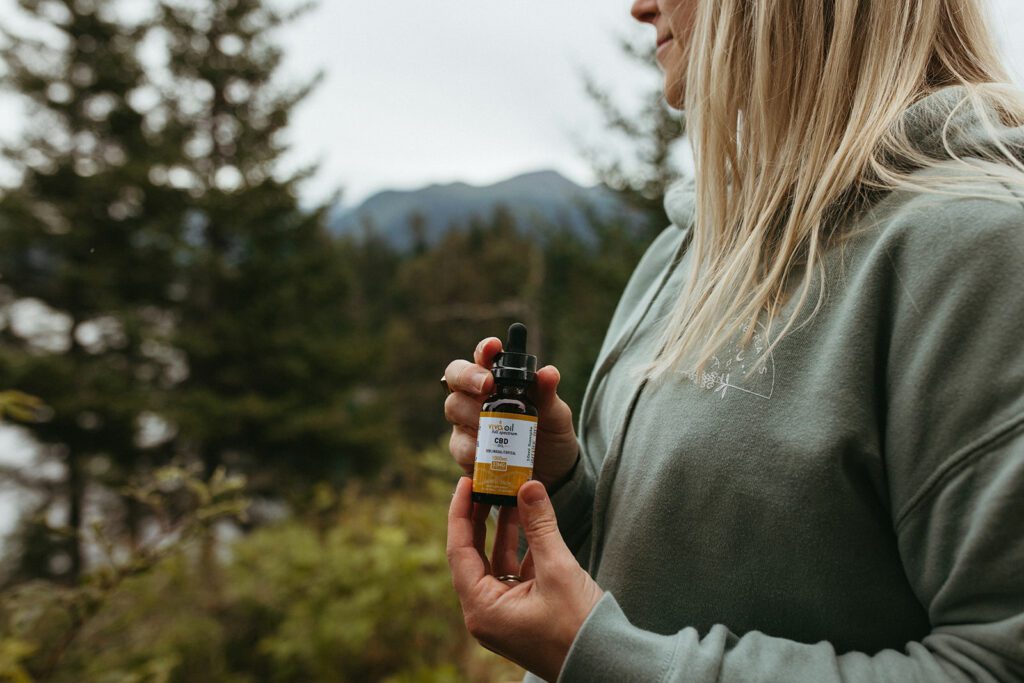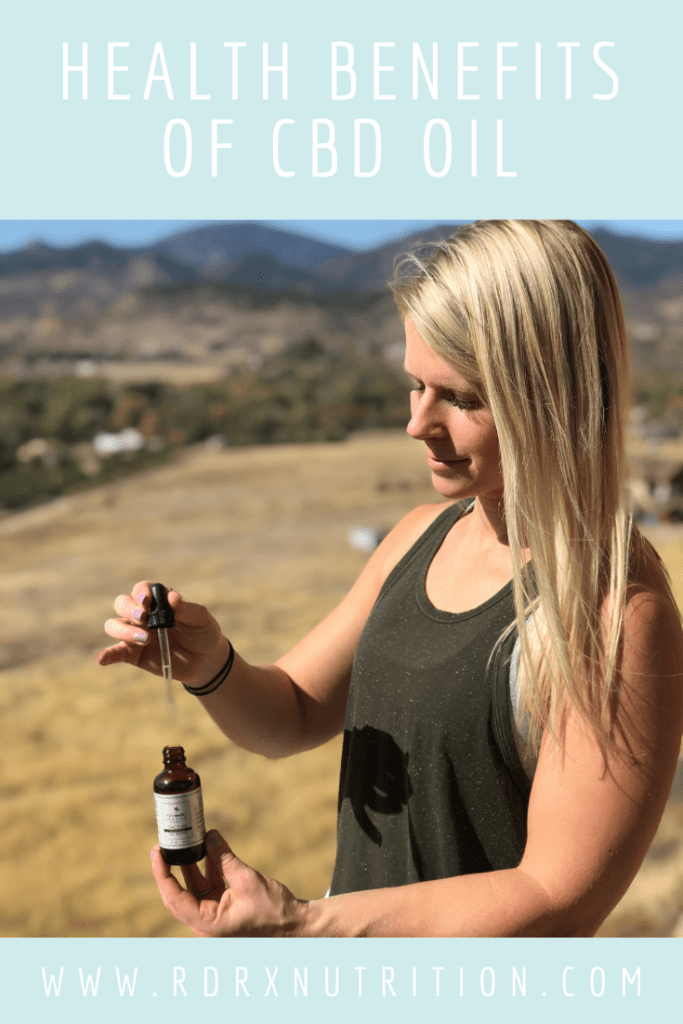The first time a patient brought CBD products into my office I freaked out (this was many years ago). I thought CBD was a dangerous drug and if you know me, you know I would be the last person to have drug paraphernalia in my office. I panicked and assumed CBD could be harming my patient and might cause medication interactions.
So after that encounter with CBD, I educated myself. The patient told me they bought their CBD products online and it was no big deal. I didn’t believe it. Like was there a black market for drugs on the internet that normal people could just go buy?
Here’s what I found.
What is CBD?
Well it’s not dangerous, thank goodness. CBD is cannabidiol, one of the many cannabinoids found in the hemp and cannabis plants. Unlike the cannabinoid THC, CBD is nonpsychotropic (non-intoxicating is the more acurate word, CBD is actually psychoactive because it has a calming effect), meaning it will not make you “high.” CBD has research showing anti-inflammatory, anti-anxiety, neuroprotective, antibacterial, analgesic, anti-spasmotic, antiemetic, anti-psoriatic, anti-diabetic, anti-ischemic, and vasorelaxant properties that MAY provide relief for a variety of conditions.
However, more research still needs to be done for the health benefits of CBD oil (like with most supplements and nutrition guidelines). I have cited many of the recent research studies published below.
How should I take or use CBD?
Oromucosal Drops/Spray
Sublingual (beneath the tongue) & Buccal (between cheeks and gums)
Systemic bioavailability 20-30% (MacCallum & Russo, 2018)
Onset: 15-45 min
Duration: 6-8 h
Oral
CBD oil is immediately swollowed or a gummy, capsule or food product is consumed containing CBD
Systemic bioavailability 6% (Lucas et al., 2018)
Inhalation
Vaporizing or Smoking
Systemic bioavailability 31% (Lucas et al., 2018)
Onset 5-10 min
Duration 2-4 h
Recommended on to be used as an add-on option to an already existing sublingual & topical CBD regimen.
Transdermal / Topical (no clinical data available; only preclinical animal studies)
Onset and duration: variable
Less systemic effect; benficial for localised symptom management (Millar et al., 2018)
These research findings indicate that the most effective method to take CBD is through the oromucosal method. Consuming softgels and gummies etc. result in a lower systemic bioavailability comparatively.
Concerns with water soluble products are the level of processing that is required to achieve this “water soluble” state. Every additional stage of processing the CBD hemp extract exposes the cannabinoids and terpenes to damage. I would be surprised if any of the water soluble products available on the market contain terpenes. Important to note – terpenes are highly volatile compounds – that is, they are easily destroyed. It is only through careful CO2 extraction that the precious terpenes remain. CBD, together with other phytocannabinoids such as THC, hold a synergistic relationship with terpenes. That is, they work together within the body, hand-in-hand, to provide greater benefit than what could be achieved alone. A research backed alternative to address “pain, inflammation, depression, anxiety, addiction, epilepsy, [along with] fungal and bacterial infection” (Russo, 2011). CBD and other cannabinoids are lipophilic. That is they are fat-loving. When a CBD extract is combined with a carrier oil, absoprtion and therefore biovailability is increased. It is for these reasons that I do not favor water soluble products.
How do I know if it’s legit CBD?
Ask for third party or independent testing showing the quality of the supplement. Adding CBD oil to trendy coffees and foods is not as effective. Do your research. I use Viva Oil. They ensure quality and sent me tinctures with lab testing results and a great dosing chart to get started.
Will CBD interact with my other medications?
ALWAYS discuss with your primary care doctor before starting any supplement. CBD may interact with heart, liver and other medications. It’s important to assess this with your healthcare provider.

Here is a link to a helpful resource
https://www.drugs.com/drug-interactions/cannabis-index.html
Will CBD show up on a drug test?
If you choose a CBD supplement without any testing showing the amounts of THC you are at risk. Be aware that CBD products can legally contain up to 0.3% THC so this may trigger a positive drug test. If this is a concern be sure to choose a zero THC product, confirmed with independent lab analysis. But know that no company will ever be able to guarantee zero THC, the molecules are so similar that it is impossible to separate them completely. If you are someone who is worried about a THC drug test, topical solutions like salves and creams might be your only option, as the topical application doesn’t get into your bloodstream.
Does CBD actually work and what can it do for me?
Everyone is different in terms of when and how much relief they will see from taking CBD oil. Some report dramatic relief in a matter of days, while in others it can take two or more weeks to see a beneficial effect or any health benefits of CBD oil. There are some people who may not see significant relief. You may need to try different modes of intake and it’s important to know that CBD can work at a cellular level to help reduce inflammation whether you feel significant relief from your pain/symptoms or not.
The evidence for cannabidiol health benefits:
CBD has strong scientific evidence is for its effectiveness in treating some of the childhood epilepsy syndromes. In numerous studies, CBD was able to reduce the number of seizures, and in some cases, it was able to stop them altogether. Videos of the effects of CBD on these children and their seizures are readily available on the Internet for viewing, and they are quite striking. Recently the FDA approved the first ever cannabis-derived medicine for these conditions, Epidiolex, which contains CBD.
CBD is commonly used to address anxiety, and for patients who suffer through the misery of insomnia, studies suggest that CBD may help with both falling asleep and staying asleep.
CBD may offer an option for treating different types of chronic pain. A study from the European Journal of Pain showed, using an animal model, CBD applied on the skin could help lower pain and inflammation due to arthritis. Another study demonstrated the mechanism by which CBD inhibits inflammatory and neuropathic pain, two of the most difficult types of chronic pain to treat. More study in humans is needed in this area to substantiate the claims of CBD proponents about pain control.
Why are you taking CBD oil?
I deal with (self-inflicted) stress physically and mentally. I love intense workouts, lifting heavy and pushing my limits which often leaves my body sore and a bit inflamed. I also like to work 24/7 which is something I am trying to address with not just CBD but other stress-reducing techniques. I have noticed an improvement with my sleep, taking CBD before bed and will continue to blog about my experience.
Research Studies regarding the health benefits of CBD oil:
CBD for Epilepsy
CBD for Neurological Diseases such as Alzheimer’s, Multiple Sclerosis, and Parkinson’s
CBD for Chronic Pain
CBD for PTSD
CBD for Cancer:
